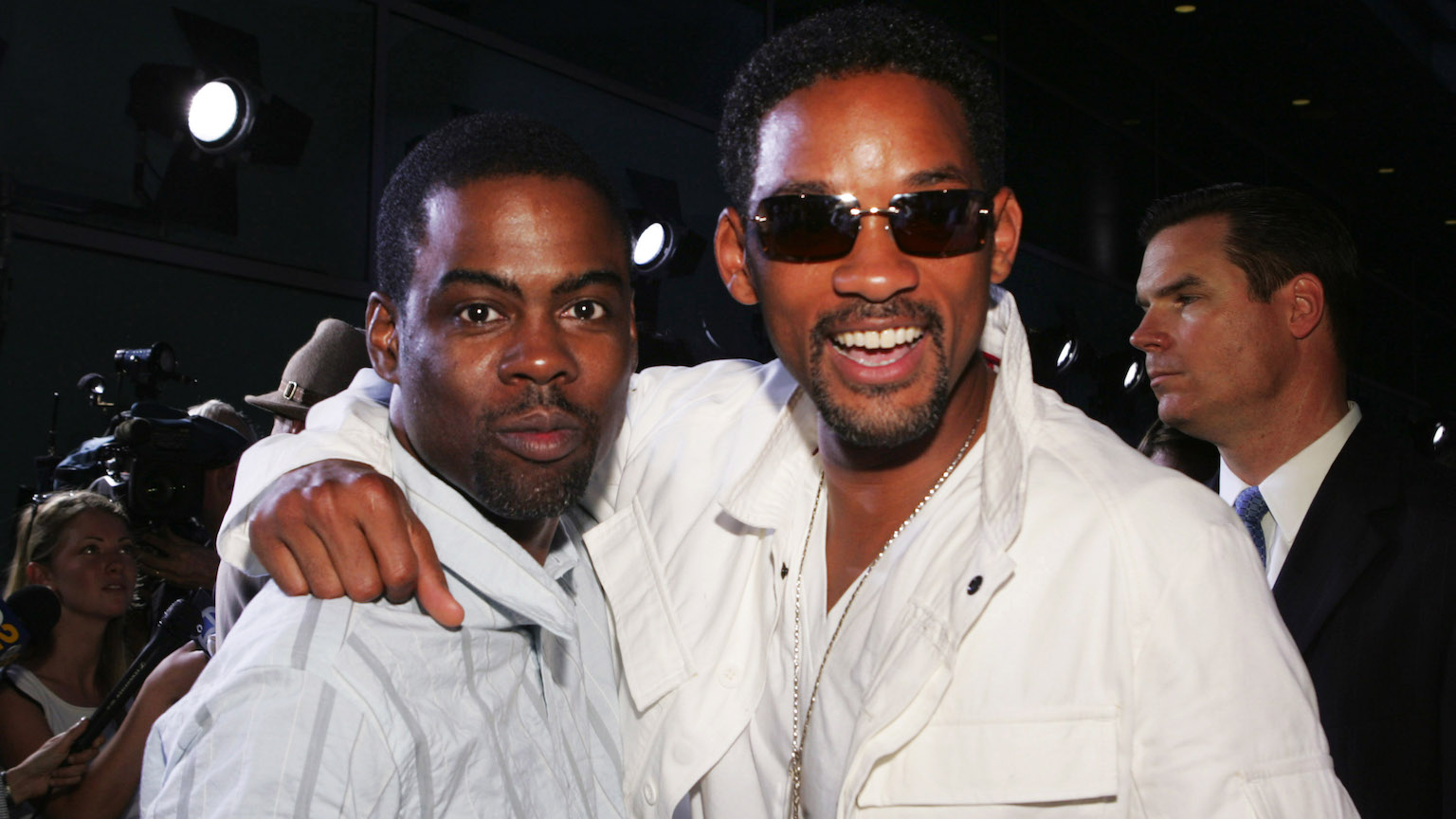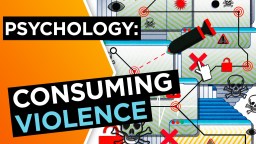Is violence always wrong? A hands-on ethics lesson from Will Smith slapping Chris Rock

- At the 2022 Oscars, actor Will Smith slapped comedian Chris Rock for an offensive joke the latter made about his wife.
- The issue raises interesting questions about whether it is ever permissible to slap another human for offending a loved one.
- Our attitudes to Will Smith’s slap also mirror our attitudes to violence, masculinity, and protecting others more generally.
At the 2022 Oscars, the comedian Chris Rock made a joke about Will Smith’s wife. Rock joked that he couldn’t wait to see Jada Pinkett Smith in GI Jane 2 — referring to a character who has a shaved head. Pinkett Smith suffers from alopecia, an autoimmune disease that often leads to hair loss. Will Smith, disliking Rock’s joke, walked onto the stage and slapped the comedian. Smith later apologized for the act, saying people do “crazy things” in the name of love.
There are interesting philosophical and ethical questions to be asked about this. As part of his apology, Smith said, “Violence in all of its forms is poisonous and destructive.” But is it? What (if anything) was wrong with the Will Smith slap?
You might fall trying to do what I did
The German philosopher, Immanuel Kant, is a staple of any Ethics 101 textbook. His “categorical imperatives” and duty-based ethical theory (called deontology) are often pitched against “consequentialist” theories, most often utilitarianism. Without going into too much detail, a typical Kantian view of Will Smith’s slap would be to ask (in what we imagine to be a condescending, parental tone): “What if everyone did this?” This exercise is meant to imagine a world in which a certain “maxim” (rule of conduct) is universalized.
But, this idea (known as “universalizability”) is tricky to unpack. What, exactly, is the maxim we are to examine? Is it, slap another human being when you want to? If so, it is pretty safe to assume that a world where everyone slapped each other, for whatever reason, would be a bad one. There is nothing contradictory or nonsensical about such a world, but it certainly wouldn’t be a happier, more functional, or better one (and is therefore what Kant calls an “imperfect duty”).
But what about a subtler maxim, something more tailored to what Smith did at the Oscars? Perhaps we could draw up a maxim like, slap an otherwise healthy person, in a way which leaves no permanent damage, if they deeply offend a loved one? If so, some might argue this could be universalized. In fact, it might be a world we would like. Many people very well might approve of a society that physically punishes people who cause harm to our loved ones.
This isn’t necessarily to commit to a slippery slope, where we maim or kill those who make offensive jokes, for instance. The maxim would be specific to a very limited form of violence. Not all violence is the same, and to allow or disallow one kind says nothing of the others. It is worth pointing out that few people have a problem with Ukrainian soldiers and citizens fighting back (lethally) against Russian invaders.
Swallow your pride, don’t let your lip react
Bertrand Russell, a British philosopher imprisoned as a pacifist during the First World War, might offer a different perspective altogether. For Russell, much violence in the world — and the smallest kinds of life — are those which feed off “possessive impulses.” When people are concerned only with their reputation, honor, or prestige, they are indulging these impulses. Even love, when treated carelessly, swells on a tide of jealousy and possessiveness.
In our case, what exactly motivated Will Smith’s slap? Was it because of a perceived offense done to his wife, or was it because of an offense in some way done to him — a slight to his masculinity or a challenge to his narrative of protector and guardian? She is my wife, and I will defend my property. For Russell, this kind of impulse is never cause for violence. Violence born of possessiveness is, in Smith’s words, “poisonous and destructive.”
Any damsel that’s in distress
For some, Will Smith’s slap was the “natural” action of a loving husband, looking after his wife. In Smith’s own words, love makes us all do “crazy things.” But this argument fails on two counts.
First, if it were “natural,” as in inherent to being a male human, then it would be far closer to universal. Yet, in any number of previously offensive Oscar ceremonies, no one physically assaulted the comedian. Millions of men around the world have sat through, or heard, offensive jokes about their loved ones and not ended up slapping the culprit. Second, even if it were natural, that does not in any way justify it. Black widow spiders kill and eat their mates; we would not wish to emulate that natural behavior. On the flip side, airplanes, coffee machines, and condoms are not “natural,” yet most of us are quite happy to use them — quite possibly at the same time. In fact, it is hard to pin down what “natural” even means.
But what is more telling is how this response reveals the not-so-unconscious attitudes at play here. If we excuse Will Smith’s slap as “what any self-respecting husband would do,” then we risk propagating and celebrating a very particular type of male-identity. It is the view of wife-as-property to be protected and husband as the stalwart Guardian of Reputation. It is a view that perceives a rival or threat as something that must be punished — no one can interfere with my wife.
Big Will bringing the heat
The reason Will Smith’s slap has gathered such media attention and water cooler conversation is not simply because it is another example of celebrities misbehaving at the Oscars. Instead, it polarizes and divides us because, in some ways, it’s a fundamental conflict of attitudes.
For some, violence is sometimes permissible when it means protecting a loved one or dissuading others from causing further harm. For others, a man slapping another man for offending his wife is antiquated, retrograde bravado, laced with sexist assumptions and backward thinking. The complicated aspect of all this is that both of these can be true. Will Smith’s slap is so interesting because, for a lot of people, it walks the line between both. It challenges our personal positions (the, “What would I have done?” question) as well as our societal values and expectations.
So, what do you think? Would you have done the same in Smith’s situation? Was his slap right or, at least, permissible? Or do you think his actions were crazy and destructive? All of the above?
Jonny Thomson runs a popular Instagram account called Mini Philosophy (@philosophyminis). His first book is Mini Philosophy: A Small Book of Big Ideas.





